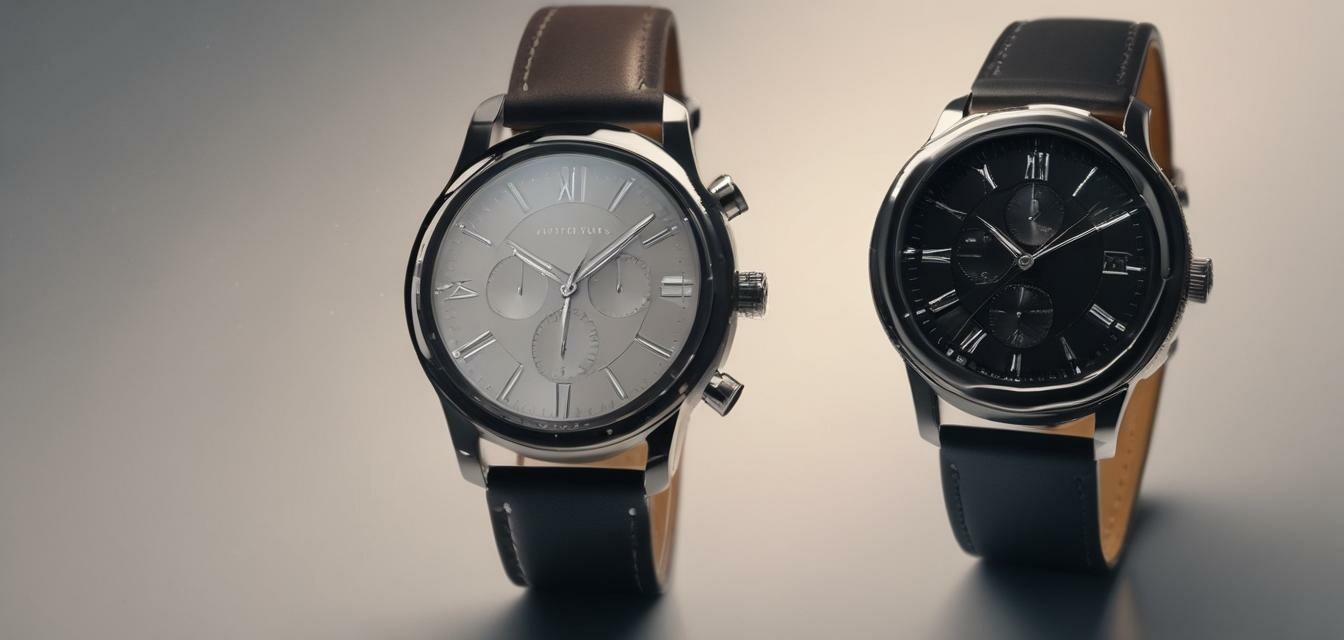
The Rise of Smart Luxury Watches: Are They Worth It?
Key Takeaways
- The introduction of smart luxury watches offers new functionalities that improve everyday life.
- Traditional luxury watches still hold significant sentimental and aesthetic value.
- Consumers are weighing the practicality of features against the legacy and craftsmanship of classic timepieces.
- Brands are merging traditional luxury with smart technology to attract a modern audience.
- A balance between style, technology, and functionality is essential for the evolution of luxury watches.
The luxury watch industry is continuously evolving, and as we step into 2024, one of the most prominent trends is the rise of smart luxury watches. These timepieces blend high-end craftsmanship with advanced technology, promising an experience that appeals to both the traditional luxury watch aficionados and the tech-savvy professionals of today.
The Evolution of Luxury Watches
Luxury watches have always represented status, craftsmanship, and artistry. Renowned brands like Cartier, Omega, and Rolex have built legacies that are synonymous with luxury. With the technological advancements in wearable technology, luxury watchmakers have found a way to incorporate innovative features without compromising on quality or aesthetics.
Traditional vs. Smart Luxury Watches
| Aspect | Traditional Luxury Watches | Smart Luxury Watches |
|---|---|---|
| Craftsmanship | Handmade with intricate designs | Combination of craftsmanship and technology |
| Functionality | Timekeeping and aesthetic appeal | Health tracking, notifications, GPS, etc. |
| Battery Life | Years without maintenance | Typically a few days to a week |
| Value Retention | Often appreciates over time | Depreciation can occur due to rapid tech advancements |
The Appeal of Smart Luxury Watches
So what makes smart luxury watches so appealing? Let's take a closer look at their advantages that are reshaping consumer preferences.
Pros
- Advanced Features: Smart luxury watches offer functionalities like heart rate monitoring, sleep tracking, and customizable watch faces.
- Connectivity: With notifications for calls, messages, and apps, staying connected is easier.
- Fitness Tracking: They cater to the health-conscious by providing instant feedback on physical activities.
- Customization: Users can tailor their watches with downloadable apps and faces.
Cons
- Battery Dependency: Regular charging is a requirement that traditional watches don't have.
- Resale Value: Smart watches may depreciate significantly due to technology upgrades.
- Complexity: The multitude of features can overwhelm some traditional watch enthusiasts.
- Shorter Lifespan: Model obsolescence can be quicker compared to classic luxury watches.
Market Insights and Trends
According to recent market research, the demand for smart luxury watches is on the rise. Many luxury brands are adapting to this trend by developing innovative models that appeal to both younger and older generations. The following table shows the projected growth in the market for smart luxury watches:
| Year | Projected Growth (%) |
|---|---|
| 2024 | 25% |
| 2025 | 30% |
| 2026 | 20% |
| 2027 | 22% |
Luxury Brands Embracing Smart Technology
Several prestigious brands are entering the smart luxury watch market. Companies like Breitling, TAG Heuer, and Hublot have launched models that incorporate smart features while maintaining the luxurious feel of their traditional watches. These brands remain conscious of the rich history of watchmaking while innovating for a digital age.
Consumer Perspectives
The integration of technology into luxury watches has sparked much discussion among consumers. Many appreciate the novelty and practicality of smart watches, while others remain loyal to the traditional models they’ve inherited or collected over the years. Each side brings valid arguments, contributing to a robust dialogue about the future of luxury timepieces.
Conclusion: The Future of Luxury Watches
The rise of smart luxury watches indicates a shift in the luxury watch landscape. While traditional models will always have a place in the hearts of enthusiasts, the appeal of enhanced functionality cannot be overlooked. As technology continues to advance, the question remains: will these smart devices become the new definition of luxury, or will traditional craftsmanship endure? Only time will tell.
Tips for Choosing Between Smart and Traditional Luxury Watches
- Determine your primary usage: work, leisure, or fitness?
- Consider your lifestyle and needs for connectivity.
- Think about resale value if you plan to upgrade in the future.
- Explore models from various brands to find the design that speaks to you.
For more insights on luxury watch shopping, check out our Buying Guides section.

